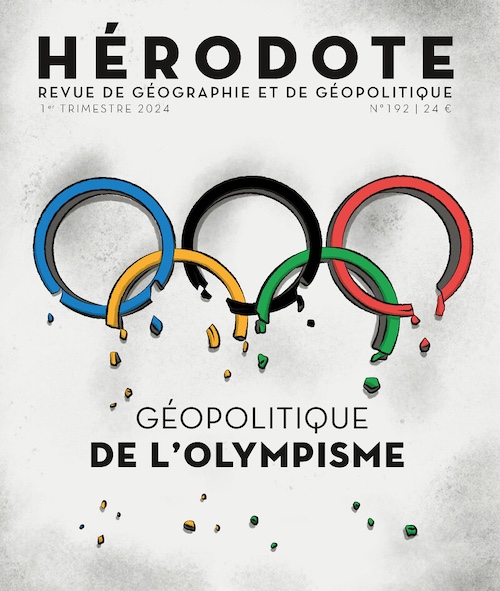L’hypothèse du sport international comme élément protonational dans la construction d’une nation kosovare
par Pauline Soulier
Résumé :
Vingt ans après la fin de la guerre, la question du statut du Kosovo est toujours en suspens. Encore aujourd’hui, le statut de cette République autoproclamée en 2008 est contesté et fait l’objet de négociations notamment sous l’égide de l’Union européenne. Si l’État du Kosovo n’est pas reconnu au niveau international malgré la résolution 1244 du Conseil de sécurité des Nations unies, qu’en est-il de la nation ? Eric Hobsbawm explique que l’élément protonational le plus décisif est la « conscience d’appartenir ou d’avoir appartenu à une entité politique durable ». Une nation, pour vivre, nécessite des points de convergence entre ses membres. Le sport, parce qu’il est présenté comme rassembleur, peut être vecteur de ce que Michael Billig nomme le « nationalisme ordinaire ». Il est alors susceptible de contribuer à la création d’un sentiment national dépassant les particularismes individuels. Le sport serait alors créateur d’un lien imaginaire dans la mouvance des travaux de Benedict Anderson. Ainsi, le sport international peut-il être l’un des éléments protonationalistes de la construction d’une nation kosovare conjuguant, voire sublimant, les antagonismes serbes et albanais. Est-il possible de pratiquer du sport en commun ? Comment de possibles équipes nationales sont-elles accueillies tant au niveau kosovar qu’international ? Les champions kosovars ont-ils un poids politique ? Nous étudierons les exemples de la tentative de récupération des judokas olympiques par le gouvernement et des tensions persistantes dans les rencontres sportives locales et européennes.
Abstract : The hypothesis of international sport as a protonational element in the construction of a Kosovar nation
Twenty years after the end of the war, the question of the status of Kosovo is still unresolved. Even today, the status of this self-proclaimed Republic in 2008 is contested and is the subject of negotiations, particularly under the aegis of the European Union. If the State of Kosovo is not recognized internationally despite United Nations Security Council Resolution 1244, what about the nation ? Eric Hobsbawm explains that the most decisive protonational element is the “consciousness of belonging or having belonged to a lasting political entity”. A nation in order to live requires points of convergence between its members. Sport, because it is presented as unifying, can be a vector of what Michaël Billig calls “ordinary nationalism”. It is then likely to contribute to the creation of a national feeling going beyond individual particularities. Sport would then create an imaginary link in the movement of the work of Benedict Anderson. Thus, international sport can be one of the proto-nationalist elements in the construction of a Kosovar nation, combining or even sublimating Serbian and Albanian antagonisms. Is it possible to practice sports together ? How are possible national teams welcomed both at the Kosovar and international level ? Do the Kosovar champions have political weight ? We will study the examples of the government’s attempt to recover Olympic judokas and the persistent tensions in local and European sporting events.










